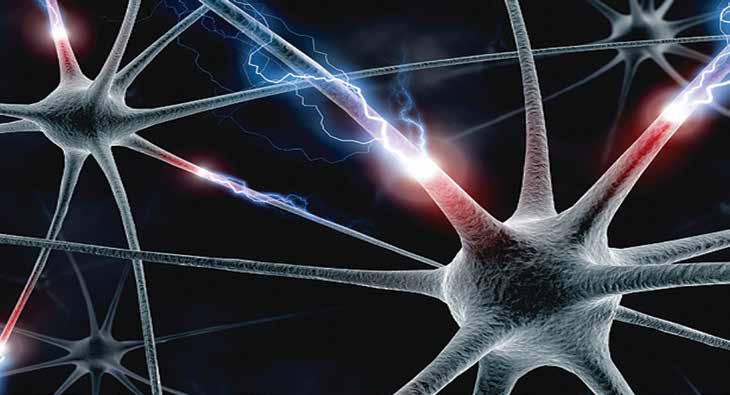NFL AND LIFESTYLE FACTORS COMMENTARY
Neurofilament light protein (or Nfl for short) is a molecule that is present in the blood and spinal fluid. This molecule helps to make up the structure of our nerve cells. When nerve cells become damaged, Nfl is released into the spinal fluid and blood, and this can be measured using specialised laboratory tests. Many research teams have started labelling Nfl as a marker of disease progression in many neurological conditions, however this molecule is not specific to any particular type of neurological condition and still needs further research, which is why it is not a routine blood test.
Lifestyle factors have been shown to influence brain health in many different populations, including older adults and people living with neurological conditions, such as huntington’s disease (HD). in particular, factors such as physical activity and fitness, smoking status, alcohol consumption, cognitive (brain) function and social connections have been shown to influence the age of HD onset. taking into account that Nfl is essentially a marker of brain health and that lifestyle factors can influence brain health, the huntington’s Disease research team at EDITH COWAN University looked to assess the relationship between lifestyle factors and Nfl levels in people with preclinical HD.
Twenty nine people carrying the HD gene mutations and 15 people without the mutation participated in the study in Perth and Melbourne. these participants donated a small amount of blood and undertook a series of tests that assessed their physical activity levels, fitness, smoking status, alcohol consumption, cognitive function and social connections. the research team found that higher levels of Nfl in the blood are related to lower physical fitness, reduced cognitive reserve (lower education, reduced intellectually demanding job, less frequent cognitive activities and lower iQ) and fewer social connections. While larger studies with more participants are needed to confirm these exciting preliminary findings, the message still remains that being physically, mentally and socially active is good for brain health!
MULTIDISCIPLINARY REHABILITATION ON SLEEP AND CIRCADIAN RHYTHMICITY
Disturbances in sleep and circadian rhythmicity (sleep/wake activity) are common in individuals with huntington’s disease (HD). these disturbances are thought to arise due to damage within the hypothalamus, a brain structure crucially involved in the regulation of sleep and circadian activities. Despite intense scientific efforts, there are no evidence-based drug therapies that positively impact on sleep and circadian problems or their underly-ing brain and biological pathology in individuals with HD.
Multidisciplinary rehabilitation, a combination of exercise, cognitive training, sleep and nutritional guidance, has been shown to positively impact on sleep in individuals with Parkinson’s disease. the useful-ness of such a therapeutic strategy on sleep and circadian outcomes and associated brain and biological changes has not been investigated to date in individuals living with HD.
Researchers from the hunting-ton’s Disease research Group at EDITH COWAN University have recently completed an exploratory trial which aimed to address this gap in the literature. They conducted an allocated controlled trial on the therapeutic effects of a nine-month multidisciplinary rehabilitation intervention, compared to usual care, on sleep and circadian rhythmicity and associated brain and biological changes in 31 people carrying the HD mutation. As part of the study, participants were asked to provide a small sample of blood and saliva, perform brain imaging assessments and complete questionnaires be-fore and after the treatment period.
Following the nine-month treatment period, participants allocat-ed to receive the multidisciplinary rehabilitation intervention showed a significant reduction in volume loss of the hypothalamus and maintenance in levels of brain derived neurotrophic factor, which is a protein known to support brain cells.
Despite these positive findings, no changes were observed for sleep, circadian or mood outcomes.
These preliminary findings sug-gest that multidisciplinary rehabilitation has a positive impact on brain changes associated with HD, however not on sleep, circadian or mood outcomes. While positive, these findings stemmed from an exploratory study that included a small sample of individuals with HD. a larger randomised controlled is now underway by the ecU huntington’s Disease Research Group to confirm these preliminary findings







